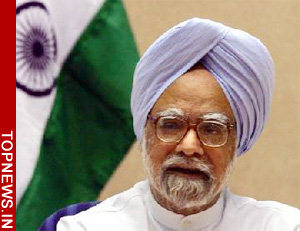India at the high table but will be the voice of developing economies
 London, Apr 1 : India is very clear about priorities. In the rush for being part of the high table it has not forgotten the developing world. It still wants to be the voice of the underprivileged. Speaking on the background to the G 20 summit officials say that India has been approached by smaller countries of Asia and Africa to speak on their behalf at the G20.
London, Apr 1 : India is very clear about priorities. In the rush for being part of the high table it has not forgotten the developing world. It still wants to be the voice of the underprivileged. Speaking on the background to the G 20 summit officials say that India has been approached by smaller countries of Asia and Africa to speak on their behalf at the G20.
The 10 emerging economies that are now part of the G20 include Brazil, Russia, India, China Mexico, Indonesia, Saudi Arabia, South Korea, Argentina and Turkey. These countries have suffered as a result of the global economic downturn, which originated in the rich nations and enveloped the whole world in its deathly embrace.
Among these countries the BRIC nations, which constitute Brazil Russia India and China, have already issued a joint communiqué in March calling for more lending to emerging economies hit by the collapse of private capital and for urgent reforms to improve their representation at the International Monetary Fund.
Indian officials say that there is not dilution of focus as far as India's objectives are concerned. Inclusive growth is what India is looking at. The G20 has already upheld India's stand on rejection of protectionism. The joint communiqué issued by finance ministers of G20 countries in march made it clear that raising barriers to trade and free movement of workers would not resolve the crisis, promising to "fight all forms of protectionism." This is probably going to be reflected even at tomorrow's summit statement.
But the fact is that the G20 is more and event rather than a process. Governments merely signing up and promising to deliver may not do so. Here in London it will be more a political exercise than a technical one. The rich nations of the world will have to resist the temptation of selfish national policies, which will be self-defeating if nothing else. It is acceptable that to some extent each country has to evolve its own mechanisms to deal with the current crisis but unless a decisive coordinated and comprehensive approach is not taken soon enough, the downward spiral will not stop. (ANI)